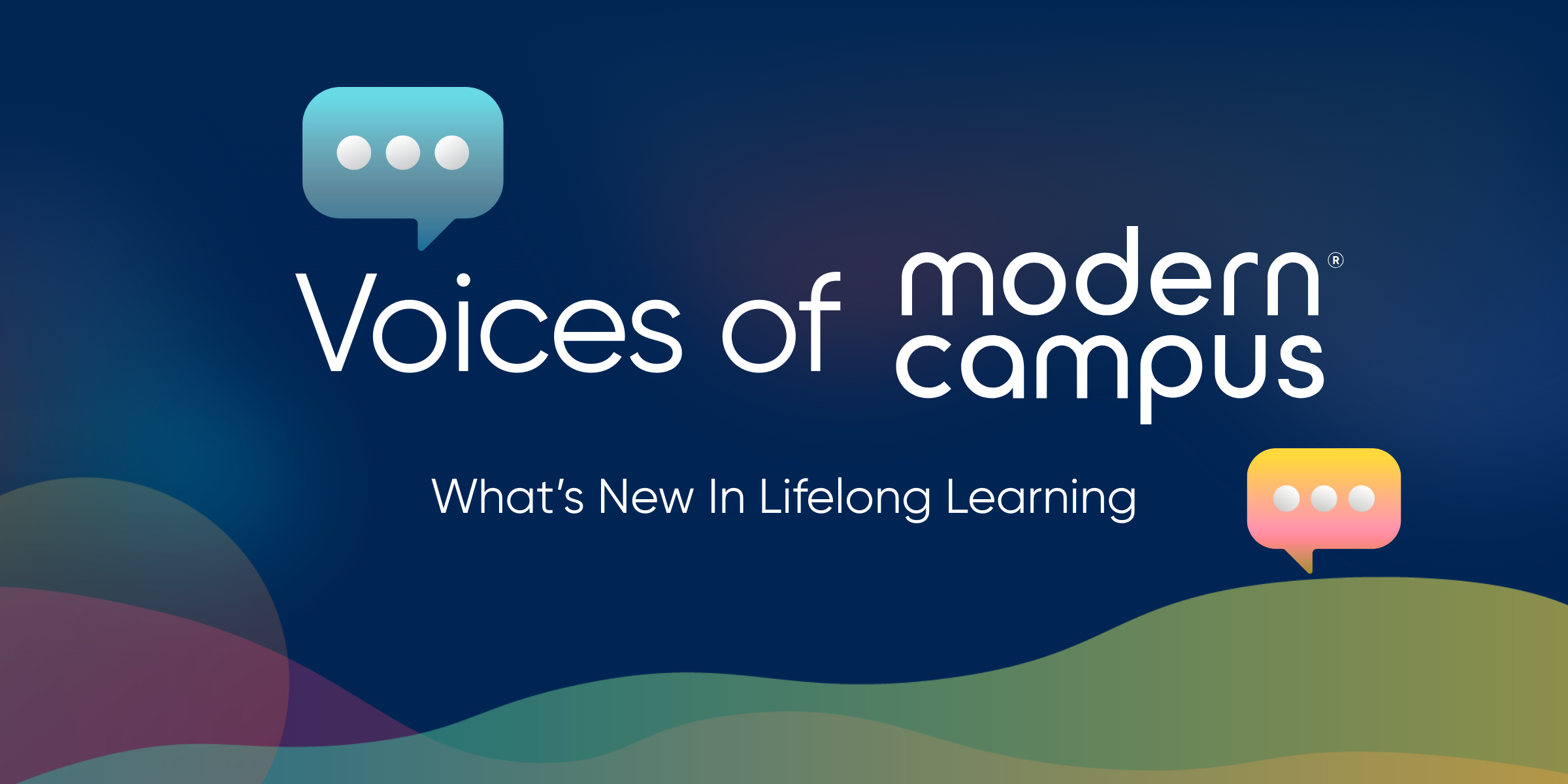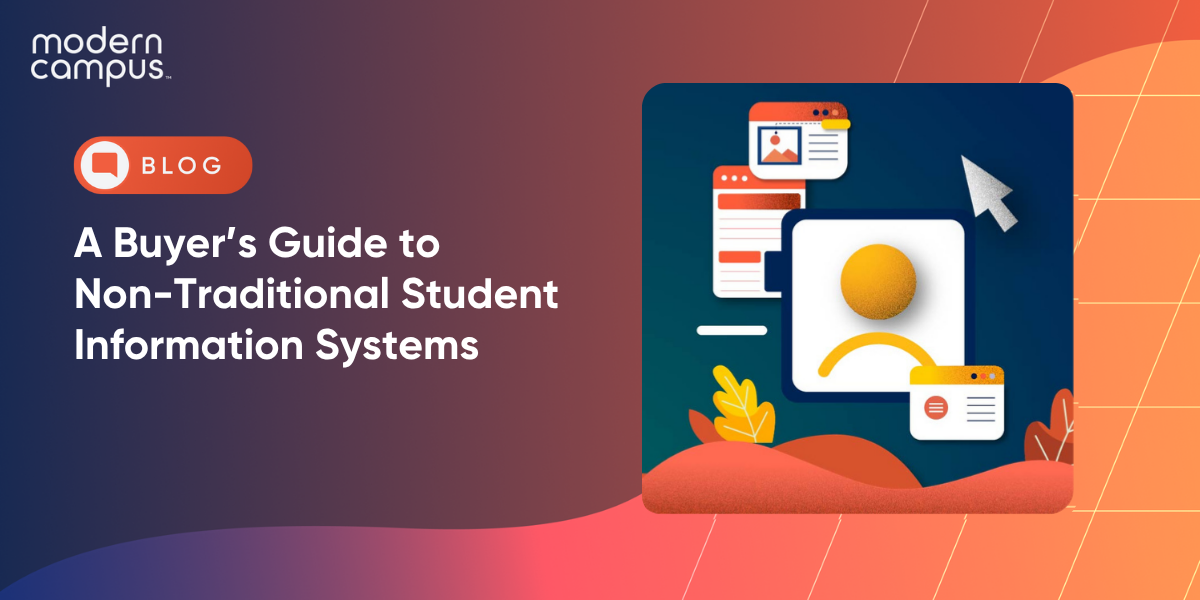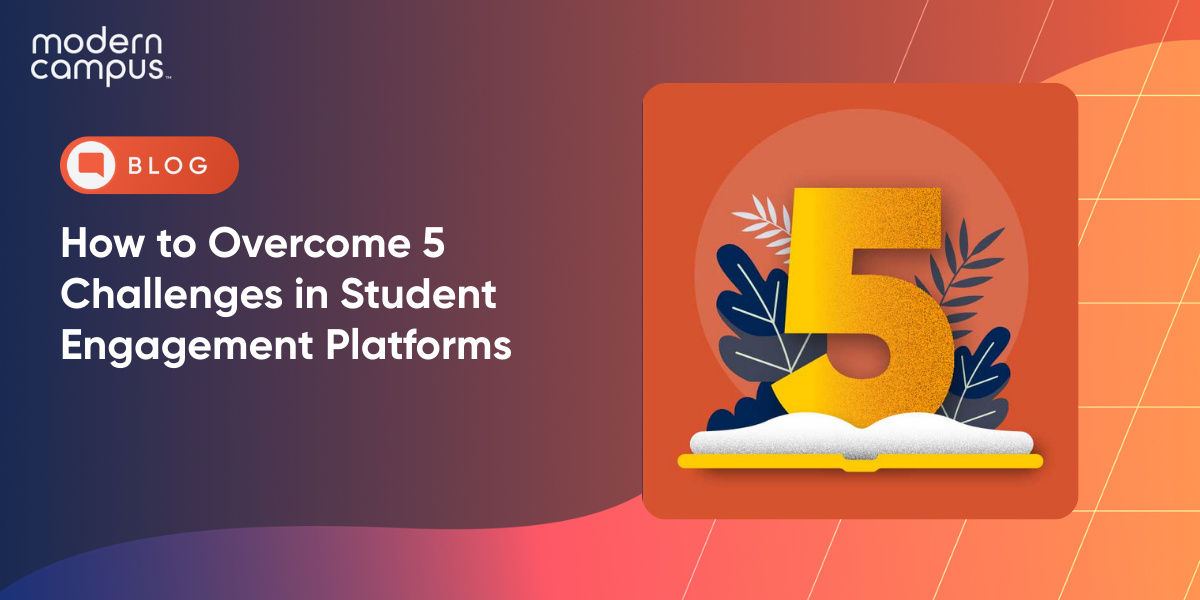Top Ways to Market Higher Education Programs and Majors
Before applying and enrolling in a higher education program, the vast majority of prospective students engage with marketing materials.
According to a 2023 study of more than 2,000 college-bound high schoolers, 93% visit institutional websites, 88% read emails from schools they’re interested in, 82% watch videos of campus and 81% view printed brochures. Other popular marketing mediums include virtual tours, text messaging, live web chats and social media posts.
Many of these students seek out information about specific majors and programs; they want to know that the program they enroll in will provide a high return on investment (ROI) befitting their career goals, offer classes that fit their schedules and preferences, and appeal to their academic interests.
In this blog post, we’ll explore top ways to leverage your new and existing marketing channels to educate students on your program offerings, earn their interest and drive enrollment.
Top Strategies for Marketing Academic Programs
1. Offer Compelling Programs
Colleges and universities can give themselves a competitive advantage by clearly communicating why their programs are unique among other institutions. This could include highlighting features like specialized coursework, renowned faculty, hands-on learning opportunities or industry partnerships.
Be sure to spell out the benefits of these features. Explain how they’ll boost students’
career advancement, propel their personal growth, and help them acquire in-demand
skills and knowledge sets. Better yet, show students the ROI of your programs in line with career pathways. Modern Campus Pathways makes it easy to display up-to-date
job market data, offer a powerful search tool for learners to research specific careers,
guide students through specific personas and objectives, and more.
Sharing this information helps prospective students understand the true value of your
programs and why they’re worth the financial and mental investment.
2. Advertise On Social Media
Social media platforms such as Facebook, Instagram, X (formerly Twitter), LinkedIn and TikTok offer powerful tools for reaching wide audiences. Through these platforms, you can create targeted advertisements that engage potential students through informative content and interactive posts — delivered right to their beloved mobile devices.
Be sure to carefully target your audience so your ads will reach the right people. You can use demographic information, interests and behaviors to target specific groups of prospective students who are most likely to be interested in your academic programs. You can also use retargeting strategies to reach individuals who have already expressed interest in your programs, such as by visiting campus, taking a virtual tour, filling out an online form, emailing your office or attending an information session.
3. Boost SEO (Search Engine Optimization)
As we previously explored, SEO is essential for increasing the online visibility of your programs. By optimizing your website content with relevant keywords, creating informative blog posts, and ensuring that your website is user-friendly and mobile-responsive, you can improve your search engine rankings and attract more organic traffic to your site. (See our list of the top ten higher ed websites for inspiration.)
One SEO strategy, which many institutions have proven to be effective, is to create a dedicated landing page for each program. This page should provide detailed information about the program, including curriculum and course requirements, faculty bios, admission expectations and student testimonials.
College-bound high schoolers have named “hard to find info about specific majors/programs” as their greatest frustration with institutional websites; strong SEO can help resolve that complaint.
4. Leverage Content Marketing
By creating high-quality, informative blog posts, articles, videos, and infographics that highlight your program benefits and address the needs of your target audiences, you can attract the attention of prospective learners and establish your institution as a reliable thought leader.
Remember to focus on providing value to your audience rather than making your content purely promotional. This could include sharing insights from faculty members, highlighting student testimonials and success stories, showcasing co-curricular activities related to your academic programs or providing tips for collegiate success. Such content can help you build trust and credibility, increasing prospects’ likelihood of engaging, applying and enrolling.
For inspiration, check out our list of the best college and university digital marketing campaigns.
5. Improve Your Email Marketing
Email marketing can help you nurture leads and keep prospective students informed. By segmenting your email list based on interests and preferences, and sending personalized, relevant content that encourages engagement and new student enrollment, you can build relationships with learners and keep your programs at the top of their minds.
Avoid being overly promotional. Instead, focus on providing valuable content. This could include sharing informative articles and resources about the application process and financial aid, inviting subscribers to local events and free webinars, or sharing interactive insights about your campus.
6. Expand Your Partnerships And Networking Opportunities
By collaborating on events, research projects and other initiatives with other institutions, non-profit organizations and industry leaders, you can increase the visibility and credibility of your academic programs. You can explore potential collaboration opportunities and expand your network by attending conferences, workshops, and industry events.
Building relationships with key stakeholders can also help you gain valuable insights into market trends and student preferences. Consider establishing partnerships with employers, professional organizations and community groups to create opportunities for internships, job placements and collaborative projects that can enhance the value of your academic programs.
7. Grow Your Presence At Recruitment Events
College fairs, open houses, virtual information sessions and other recruitment events can help your institution meet potential applicants, answer their questions and provide them with a friendly face behind your program.
To make your recruitment events more engaging and effective, consider offering campus tours, faculty meet-and-greets, and student panels — all either virtual or in-person These activities can help prospective students gain a better sense of the campus culture and academic environment, compelling them to apply and enroll.
8. Leverage Your Alumni Networks
Alumni who remember your programs fondly can serve as powerful advocates and sources of referrals for prospective students. Engage with your alumni through newsletters, social media, text messaging and alumni events to keep them connected, informed and invested in your institution.
Consider featuring alumni testimonials on your website and in your marketing materials to showcase the impact of specific academic programs and majors on their personal and professional development. Alumni can also provide valuable insights into industry trends and job opportunities, which can strengthen your higher education marketing strategies.
9. Use Data Analytics
Data analytics can provide valuable insights in guiding your marketing strategies and decision-making. By analyzing data about prospective student demographics, behavior and preferences, you can tailor your marketing messages and channels to better reach your target audiences.
Use data analytics tools to track the performance of your marketing campaigns, identify trends and envision creative strategies. For example, you can use data analytics to determine which marketing channels are most effective in converting applicants and allocate your budget accordingly.
The right CMS can help. Modern Campus CMS enables colleges and universities to see how often web visitors have frequented a specific
page, what webpages they visited previously and the user’s geolocation, among other
customer characteristics.
Last updated: June 17, 2024




